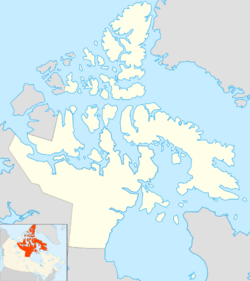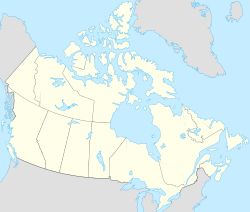South Imilit Island facts for kids
| Geography | |
|---|---|
| Location | Chesterfield Inlet |
| Coordinates | 63°32′N 91°07′W / 63.54°N 91.11°W |
| Archipelago | Canadian Arctic Archipelago |
| Administration | |
| Nunavut | Nunavut |
| Region | Kivalliq |
| Demographics | |
| Population | Uninhabited |
South Imilit Island is a small, uninhabited island in the northern part of Canada. It is part of the Canadian Arctic Archipelago, a huge group of islands in the Arctic Ocean. This island is located in the Kivalliq Region of Nunavut, Canada's largest and newest territory.
Contents
Exploring South Imilit Island's Location
South Imilit Island is found within a larger body of water called Chesterfield Inlet. This inlet is a long, narrow arm of the sea that stretches inland from Hudson Bay. The island is one of many small landmasses in this area.
Where is Chesterfield Inlet?
Chesterfield Inlet is in the Kivalliq Region of Nunavut. This region is known for its vast, open landscapes and cold climate. It is home to many Inuit communities.
Nunavut is a very large territory in northern Canada. It was created in 1999, giving the Inuit people more control over their land. Nunavut is known for its unique culture, wildlife, and stunning Arctic scenery.
The Canadian Arctic Archipelago
The Canadian Arctic Archipelago is a massive group of islands in the Arctic Ocean. It includes thousands of islands, big and small. South Imilit Island is just one tiny piece of this huge island network. Most of these islands are uninhabited, meaning no people live there permanently.
Life on an Uninhabited Island
Since South Imilit Island is uninhabited, it means there are no towns, roads, or people living there. Islands like this are often important for wildlife. They can be safe places for birds to nest or for animals to find food away from human activity.
Climate and Environment
The climate on South Imilit Island is very cold, as it is in the Arctic. Winters are long and dark, with temperatures often dropping far below freezing. Summers are short and cool. The land is likely covered in tundra, a type of landscape where the ground is frozen for most of the year. Only small plants, like mosses, lichens, and low-growing shrubs, can survive here.



